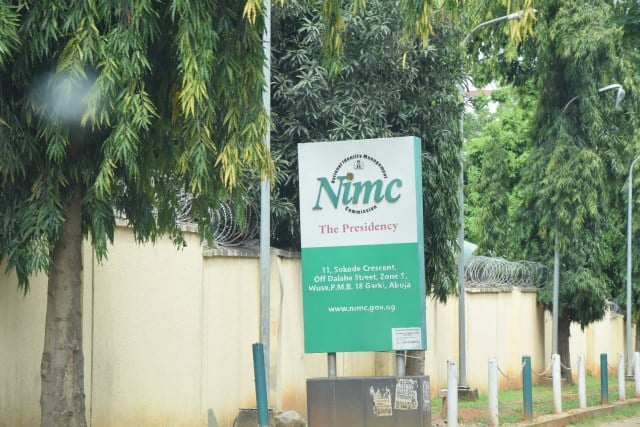Tax incentives for digital payments in offing
THE government plans to incentivise digital payment usage with potential fiscal measures such as tax benefits as part of a broader strategy to expedite the transition to cash-lite economy, Finance Minister, Mwigulu Nchemba has said.
He told reporters at the 9th Gilman Rutihinda Mem o – rial Lecture in Dar es Salaam yesterday that the government was committed to fostering a conducive environment for digital financial services and fintech development, aligning with President Samia Suluhu Hassan’s directives.
“We are considering various incentives, some of which may be related to taxes,” he told reporters at the lecture organised by the Bank of Tanzania (BoT) to honour the contribution of former Governor Gilman Rutihinda to advance innovations in the financial sector.
Tanzania has already made significant strides in advancing a cash-lite economy, driven by widespread adoption of mobile money services like M-Pesa, Airtel Money and Mixx by Yas.
The government has prioritised financial inclusion, ensuring broader access to digital banking and mobile financial services.
Moreover, the digitisation of government payments and the burgeoning fintech sector, featuring startups offering innovative solutions like digital loans and peer-to-peer lending, are further propelling this transformation.
“We are preparing to introduce incentives,” Minister Nchemba reiterated.
“When we publish the subsequent policy, we will explore the possibility of implementing incentives so that individuals using digital payments can receive tangible benefits. We are considering various incentives, some of which may be related to taxes.” He further underscored the necessity of moving away from cash-based transactions, arguing that they hinder economic progress.
“Looking at the current situation, the use of cash feels like we are forcing it. Many things are now easier digitally. You can conduct business digitally, you can transfer money digitally, you can make purchases digitally, you can order digitally. Forcing hard cash is something that delays us, it holds us back in the effort to establish a cash-lite economy.”
The government’s planned incentives signal a decisive step towards embracing digital financial solutions, aiming to enhance efficiency, transparency and economic growth.
Minister Nchemba stated that, according to the 2023 Finscope survey, 76 per cent of the adult population now has access to financial services, an increase from 65 per cent in 2017. Mobile money services are the dominant form of financial inclusion, accounting for 72 per cent, while commercial banking services represent 22 per cent.
He said that highlights the significant role that mobile money services play in increasing financial inclusion, especially in underserved and remote areas.
The minister elaborated on the broader advantages of a cash-lite economy, emphasising its role in driving efficiency and economic growth.
He said a cash-lite economy—one where digital and electronic payments dominate, reducing the reliance on physical cash— brings a range of benefits that enhance efficiency and contributes to economic growth.
Specifically, he said digital payments facilitate faster transactions, reducing wait times and boosting productivity. Furthermore, he pointed out the cost-effectiveness of electronic transactions.
“Electronic payments often incur lower costs than handling, storing and transporting physical cash,” he noted, emphasising the financial efficiency gained. Dr Nchemba also underscored the positive impact on tax collection.
“Digital transactions are more traceable, they provide a better mechanism for governments to collect taxes. This leads to better revenue generation, which can be reinvested in infrastructure, public services and economic development,” he said.
BoT Governor Emmanuel Tutuba stated that the lectures were organised to honour the contribution of former Governor Gilman Rutihinda in advancing innovations within the financial sector.
He noted that today’s theme, “Driving the Shift Towards a Cash-Lite Society: Opportunities for Financial Innovation and Inclusion,” resonates deeply with the evolving dynamics of the financial sector.
Governor Tutuba said that the transition to a cashlite economy is no longer a matter of preference, but a necessity. He explained that reducing reliance on physical cash enhances efficiency across the financial ecosystem.
He further highlighted that BoT has been at the forefront of promoting and regulating digital payments in the country, with the goal of creating a more inclusive and efficient financial ecosystem.
Governor Tutuba also outlined the pivotal role of the BoT’s National Payment System (NPS), which aims to enhance the efficiency, security and accessibility of payment systems.
The NPS integrates various platforms for electronic transfers, mobile money and other digital financial services, he said.
He mentioned its three key components: the Tanzania Interbank Settlement System (TISS), which processes large, time-sensitive transactions in real-time between banks, ensuring immediate and secure settlement; the Tanzania Interbank Payment System (TIPS), which handles smaller, everyday transactions, such as retail payments and interbank transfers, helping streamline daily financial activities; and the Tanzania Automated Clearing House (TACH), which is responsible for clearing cheques and other paper-based payments electronically









